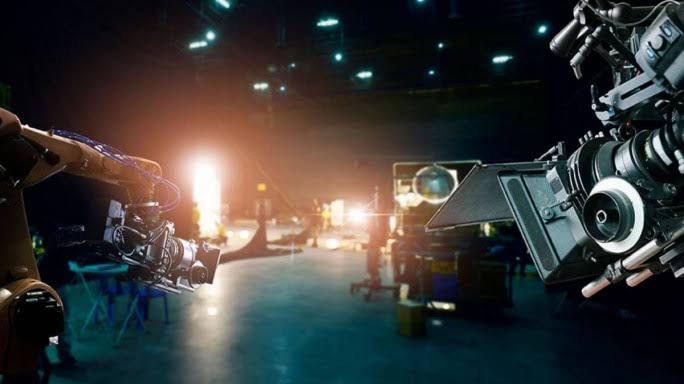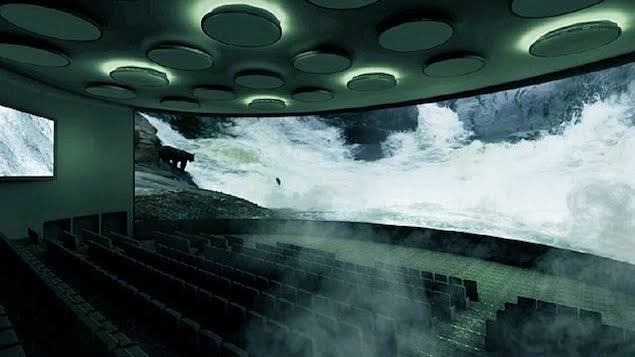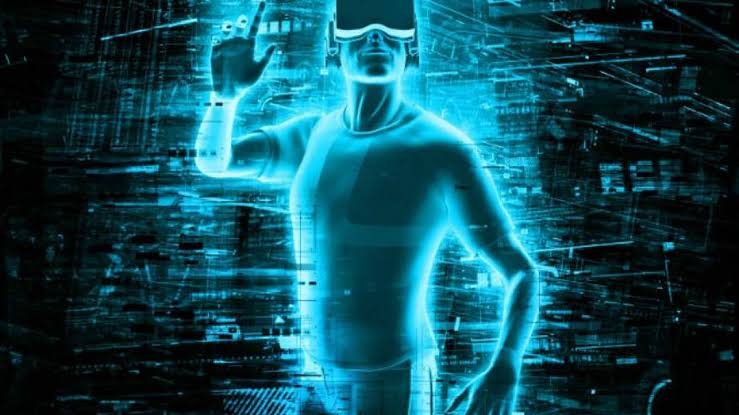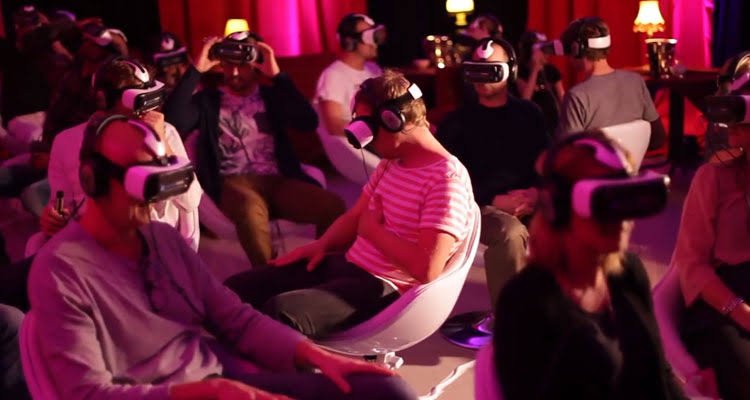The Future of Cinema: A glimpse of what is about to happen in the coming years.
Here is my entry to the @themarkymark contest :

If there is one thing that fascinates millions of human beings - for some of them a reason for true obsession - is to predict what the future will be like. Of course no one has a categorical answer to elucidate this mystery, but it doesn't stop people from placing their bets (and that's exactly what I will try to do by writing this post).
My idea is to explain some ideas that are already considered (and have been increasingly commented around the world) as true trends in the coming years in the world of Seventh Art. In their essences they are arousing curiosity, admiration, fear, surprise and in some cases... Repulsive. As you can see, the range of feelings is quite varied and I will try a little about all of them and their respective impacts.

Known by the acronym HRF, this technology brings with it the idea of a format where movies have a faster speed than the standard, which is 24 frames per second.
In short, the realism they bring is far more refined and detailed than we already know (which is certainly impressive), but at the same time this idea is more challenging because movie theaters are not yet technologically prepared to display them.
Naturally, this divides opinions by the simple fact that no one can take advantage of this technology as it should (because we as humans are not yet fully trained to appreciate it). Another aspect that also comes up with this technology is that they enable an even more tangible and more immersive reality than the existing one.
If you have no idea how it works, two very interesting examples for you to understand them "simply" is to watch The Hobbit (the first one, directed by Peter Jackson) and also is the Gemini Man (directed by Ang Lee) because both movies were worked from this new perspective of making cinema.
The next movie to use this technology will be Avatar 2, but director James Cameron has already stated that this will not happen in the whole movie because although he thinks this idea is the solution to the problems of 3D movies, some things need to be modernized to receive this kind of news. On the downside - and encouraging enthusiasts eager for news - Cameron is betting on the technology of 3D movies that don't require special glasses to watch.

The idea of being able to expand the reach of traditional films and have a hand control over what may or may not be watched and experienced again some time later is fascinating and at the same time frightening (in the positive sense of the word, because it is almost like "controlling" the time to live the same or new kind of emotions).
These types of realities have been pointed out as a new way of providing the public with a new way to explore their neural diversity to their full potential. People's senses are expected to become sharper and it is also possible to plunge into ever more challenging worlds that would not be possible in other ways of expressing art.

Bringing considerable controversy, many people (including film professionals) believe that all people's connectivity to films at this level can be detrimental because directors would no longer be seen as having the stories they tell (in the sense that they have less control when compared to less interactive experiences), but ... Just as an information channel to get to the movie, letting the audience make their own choices about what they are watching.
On the other hand, it is undeniable that since the emergence of these realities the possibility of having more and more personal experiences with the Seventh Art has fascinated millions of people and this is not difficult to understand because the more the viewer feels part of what he is watching, the more connected they will be with the story being told.

This project developed by a group of scientists from many fields covering technology in its most branched aspects was developed at Carnegie Mellon University (Pittsburg, USA) and is another idea that is making a lot of noise... Because it's not just about drones capable of making simple recordings based on pre-established commands, but it is not the fact that these vehicles are "trained" to make the best and most detailed motion captures without relying on a human's physical presence to do so.
Some people believe this trend may be the new way to record and direct movies, and to make this idea possible, researchers are training a system based on an extremely detailed technique called deep reinforcement learning. The idea behind this project is to involve a volunteer capture of the visualization of computer-generated photorealistic scenes (it is a codependency between humans and machines), where objects are "filmed" from many angles and distances, offering many perspectives on takes that may or may not be part of the project in its final assembly.
Last but not least - although I believe this will not become a trend -, it is worth mentioning a debate that has been fraught with controversy because it involves digitally recreating celebrities so they can be seen again in theaters. The most "iconic" and most recent case is that of actor James Dean, will be recreated (with permission granted by his family) exclusively for "acting" in the war movie Finding Jack.

Some people think this technology is abhorrent, while other people believe that the power of nostalgia caused by it would be beneficial and encouraging for people (especially to the fans). But the fact is that this technology involves many debatable aspects and all of them are quite complex because they involve all sorts of motivations (and yes, money is unfortunately a considerable part of them... sad, but true).
If you have read this publication so far, you may have realized that Cinema really has a very promising future ahead. In the middle of this journey in search of new ways of making movies, all of these techniques are directly connected and although they bring with them many problems, they also bring many important advances that can not - and must not - be ignored. Everything new arouses antagonistic feelings, and of course within the entertainment world this would be no exception.
To listen to the audio version of this article click on the play image.

Brought to you by @tts. If you find it useful please consider upvoting this reply.
This post was shared in the Curation Collective Discord community for curators, and upvoted and resteemed by the @c-squared community account.
If you are a community leader and/or contest organizer, please join the Discord and let us know you if you would like to promote the posting of your community or contest.
@c-squared runs a community witness. Please consider using one of your witness votes on us here